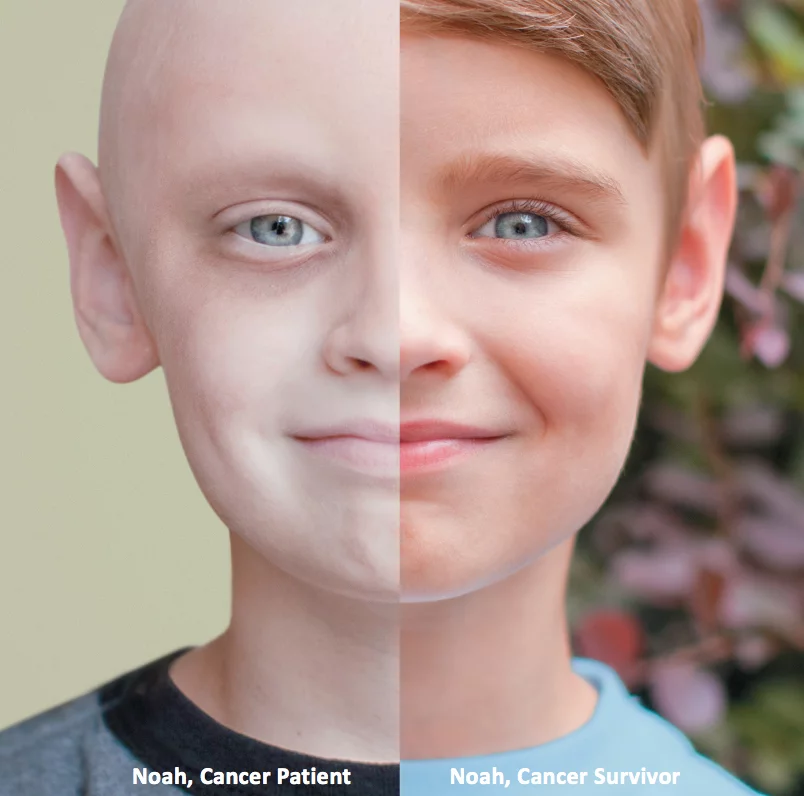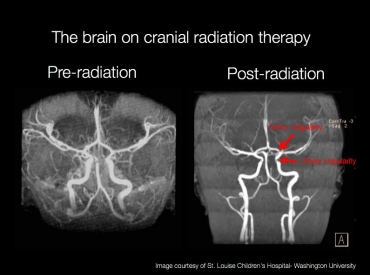
Diagnosed with Cancer? Your two greatest challenges are understanding cancer and understanding possible side effects from chemo and radiation. Knowledge is Power!
Learn about conventional, complementary, and integrative therapies.
Dealing with treatment side effects? Learn about evidence-based therapies to alleviate your symptoms.
Click the orange button to the right to learn more.
- You are here:
- Home »
- Blog »
- side effects ID and prevention »
- Pediatric Cancer-Cranial Irradiation, Stroke
Pediatric Cancer-Cranial Irradiation, Stroke

“The incidence of neurovascular events in this population is 100-fold higher than in the general pediatric population and cranial irradiation is an important risk factor”
I’m going to extrapolate a bit based on the study linked and excerpted below and you decide if I’m correct in my thinking. Being a long-term survivor of an “incurable” cancer living with a host of long-term and late stage side effects from aggressive conventional therapies when I was 35-37 years old, I figure I’m allowed to extrapolate a little based on my survivor experiences.

- Cranial radiation increases the risk of “neurovascular events”-
- Cranial radiation increases the risk of a second stroke-
- Hypertension is a risk factor for a stroke-
- Reducing hypertension/blood pressure naturally would reduce the risk of stroke-
I’m not a physician and cannot prescribe medicine. I am, however, a long-term cancer survivor. No, I never had radiation therapy to my head. Chemo and radiation yes, collateral damage yes. Lots.
I have supplemented with Nattokinase for years. I resolved a DVT slowly over many years and still take a maintenance dose of Nattokinase
. Studies have shown that Nattokinase
reduces blood pressure.
While evidence-based research clearly indicates that Nattokinase reduces blood pressure, there is no mention of this natural, inexpensive, easy therapy for childhood cancer survivors who are at great risk for stoke.
I am both a cancer survivor and cancer coach. I have experienced both aggressive conventional therapies as well as evidence-based non-toxic, non-conventional therapies and lived to tell about them both.
If you have any questions about nutritional therapies to reduce the risk of side effects of cancer therapy scroll down the page, post a question or comment and I will reply ASAP.
Thank you,
David Emerson
- Cancer Survivor
- Cancer coach
- Director PeopleBeatingCancer
Cranial Irradiation Increases Risk of Stroke in Pediatric Brain Tumor Survivors
“Conclusions-The incidence of neurovascular events in this population is 100-fold higher than in the general pediatric population and cranial irradiation is an important risk factor. By defining the incidence of this late effect, physicians are better able to counsel parents regarding treatment, monitor patients at risk, and target a population for primary stroke prevention in future studies.
Survivors of Childhood Cancer Have High-Risk of Recurrent Stroke
“A new study from UC San Francisco’s Pediatric Brain Center shows that childhood cancer survivors suffering one stroke have double the risk of suffering a second stroke, when compared with non-cancer stroke survivors. The study found that the main predictors of recurrent stroke were cranial radiation therapy, hypertension and older age at first stroke – factors that could help physicians identify high-risk patients…”
The findings provide strong evidence for adjusting secondary stroke prevention strategies in these patients, and to aggressively detect and treat modifiable stroke risk factors, such as hypertension…
Previous research has shown that radiation therapy targeting the head is a strong predictor of a first stroke. In an earlier study, the authors found that children treated for brain tumors were 30 times more likely to suffer a stroke compared to their siblings…
“If we could identify high-risk patients, we could recommend they be followed by a pediatric stroke specialist,” said Mueller. “That will be huge in providing effective follow-up care for these children.””
“Above an image of the brain’s blood vessels of a childhood cancer patient before and after cranial radiation therapy. Post-radiation, two arteries show signs of narrowing, which may encourage brain clots to form and eventually cause a stroke.”

